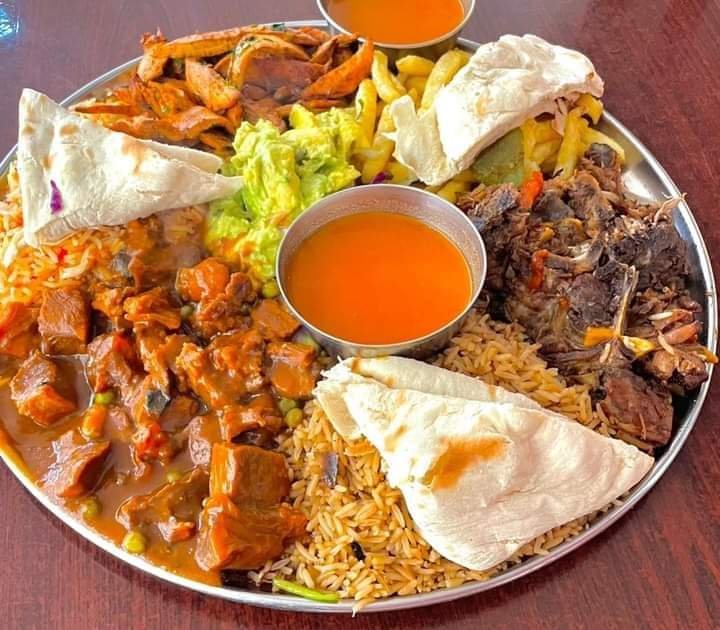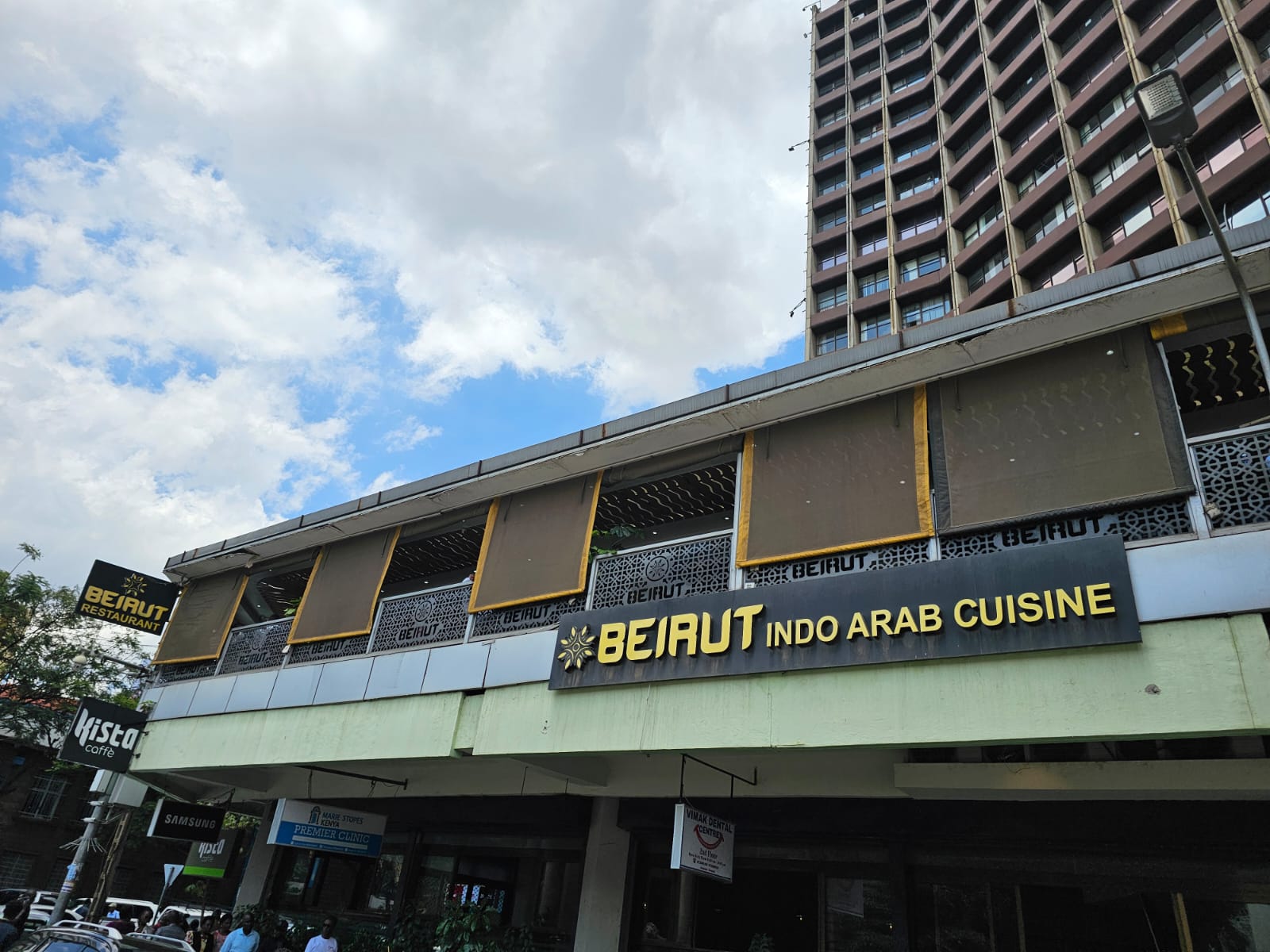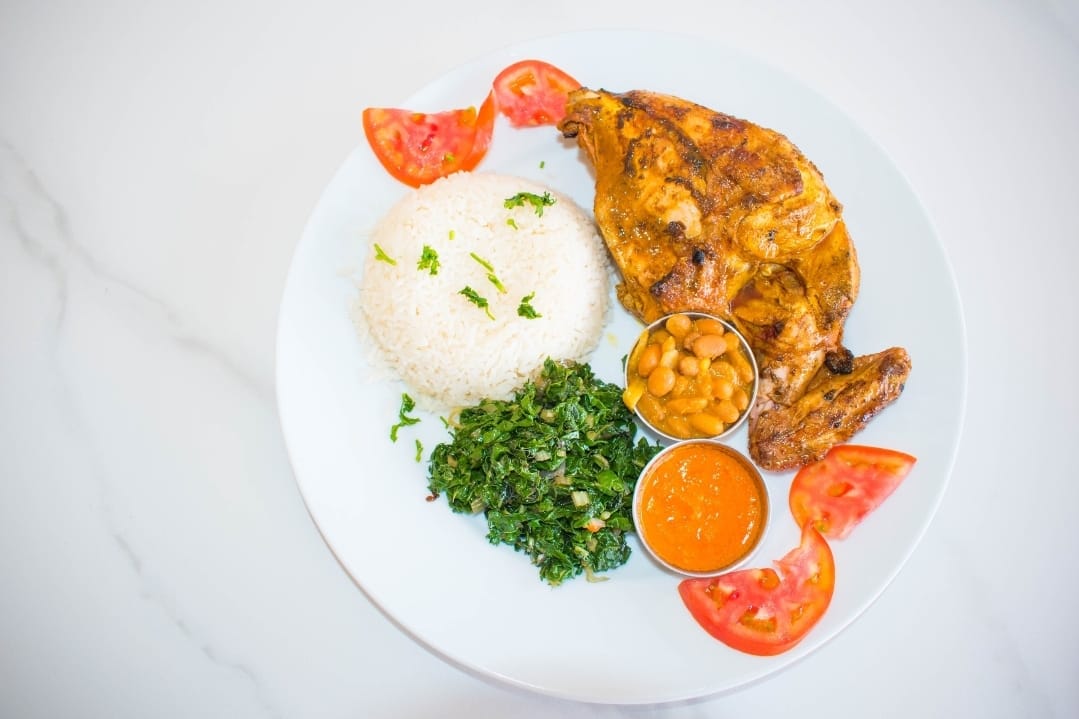Why Kenyans are flocking Nairobi's Somali restaurants

These restaurants do not serve any kind of alcoholic drinks and all customers are assured of a clean environment with tasty food, something many are attracted to.
In the heart of Nairobi's Central Business District (CBD), Beirut Restaurant on Banda Street is packed with customers munching on a diverse array of cuisines on offer.
Within moments of taking a seat, customers are greeted by polite and smiling staff. One lady dressed in a neat uniform approaches a table and inquires about preferences for lunch.
More To Read
- Secret to making perfect chocolate chip cookies at home
- Best biriyani in Eastleigh: Esli Hub Restaurant at Yare Towers delivers a flavour explosion
- Kenyan households struggle as fewer can afford basic needs, survey reveals
- From hobby to lifeline: How gardening is becoming a path to food security and resilience
- How to cook classic Somali liver fry
- How to make perfect chips masala at home – crispy, saucy and full of flavour
In recent years, Somali restaurants have become a fixture on the streets of Nairobi's CBD. Establishments like Pronto, Kilimanjaro Jamia, and Al-Yusra have risen to prominence, capturing the palates and hearts of Kenyans.
 Inside Beirut Hotel on Banda Street. (Abdirahman Khalif)
Inside Beirut Hotel on Banda Street. (Abdirahman Khalif)
What sets these eateries apart is not just the delicious meals they offer, but also their reputation for freshness and generosity.
Kenyans flock to these establishments for their authentic Somali cuisine, characterized by generous portions, all at pocket-friendly prices.
These restaurants strictly do not serve any kind of alcoholic drinks and all customers are assured of a clean environment with tasty food, something many are attracted to.
 A plater as served by Somali Hotels in Nairobi CBD. (Abdirahman Khalif)
A plater as served by Somali Hotels in Nairobi CBD. (Abdirahman Khalif)
Naomi Kuria, a regular customer of Somali-owned restaurants, attests to their appeal. She praises their commitment to freshness, noting that it is hard to find stale or recycled food, an issue that plagues many other eateries in CBD.
"It's difficult to find a Somali restaurant selling stale food or recycling as many others do behind the scenes," says Kuria. "Their food is delicious and comes in generous portions, I love the taste."
From breakfast to dinner, these establishments offer an array of authentic Somali dishes that cater to diverse tastes. For breakfast, customers can choose from three tantalizing options: suqar (karanga), made from minced camel meat fried with onions, isbeeso, a goat meat stew with potatoes, onions, and tomatoes; and beer, a delicacy of a goat liver. These dishes are served with a choice of chapati, anjero mayai (with eggs), or anjero Somali (without eggs)—traditional pancakes made from a blend of flours. To complement the meal, diners can enjoy a cup of camel tea or camel milk.
 Beirut Hotel, one of the many Somali-owned hotels in Nairobi CBD. (Abdirahman Khalif)
Beirut Hotel, one of the many Somali-owned hotels in Nairobi CBD. (Abdirahman Khalif)
For lunch or dinner, the menu expands to include six delicious options: Aleso (boiled goat meat), kostato (boiled camel meat), arosto (fried goat meat), Deilo al forno (fried young goat meat), busteki (camel steak), and dibeshi (grilled tilapia in a tomato-based sauce). Each dish comes with a choice of side, allowing diners to customize their experience.
At Al Yusra restaurant which was established in 2017, it is hard to get a place to sit during lunch hours. Hundreds come here to dine and meet friends.
The aroma of freshly cooked different cuisines fills the air. Waiters are moving up and down making sure that every customer is well served.
Here food is shared. It is common to see different friends or family members eating from the same plate. Food is served on a platter and usually contains well-marinated and slow-cooked chicken, goat meat, slices of chapati and two kinds of rice, white and brown.
Timothy Soita who works along Biashara Street says he has been a customer of this restaurant for two years. His favourite meal is Deilo.
"They make the best Deilo, I love the taste and nobody makes it like them," said Timothy.
 A plate of rice, greens and chicken. (Abdirahman Khalif)
A plate of rice, greens and chicken. (Abdirahman Khalif)
It is the same case with almost all other Somali-owned restaurants. The professional service attracts even politicians to these restaurants.
Omar Ali, the manager of Beirut Restaurant, says the beauty of Somali restaurants is they serve different kinds of cuisine. He says it is easy to find Arabic, Indian or even European food at his place and other Somali-owned restaurants.
"We serve different cuisines, everyone gets what they want. Politicians, including Members of Parliament, take their meals here," said Omar.
What truly sets Somali-owned restaurants apart is their commitment to customer satisfaction, observed Ann Rita, highlighting honesty in their business.
"If customers are dissatisfied with the quantity of their meal, staff readily offer an extra serving without hesitation," she said.
Top Stories Today
- Activists warn new ID rules still marginalise minority communities
- Nairobi County workers directed to stay home over unpaid salaries
- Doctors get Sh3.5 billion salary arrears after seven-year wait
- Pension, health insurance scandals rock Kenya as billions lost to fraud
- Somali troops awarded for heroism in battlefield victory against Al-Shabaab
- DCI seeks Interpol help to arrest suspect in Agnes Wanjiru murder case












































